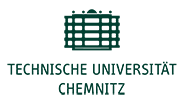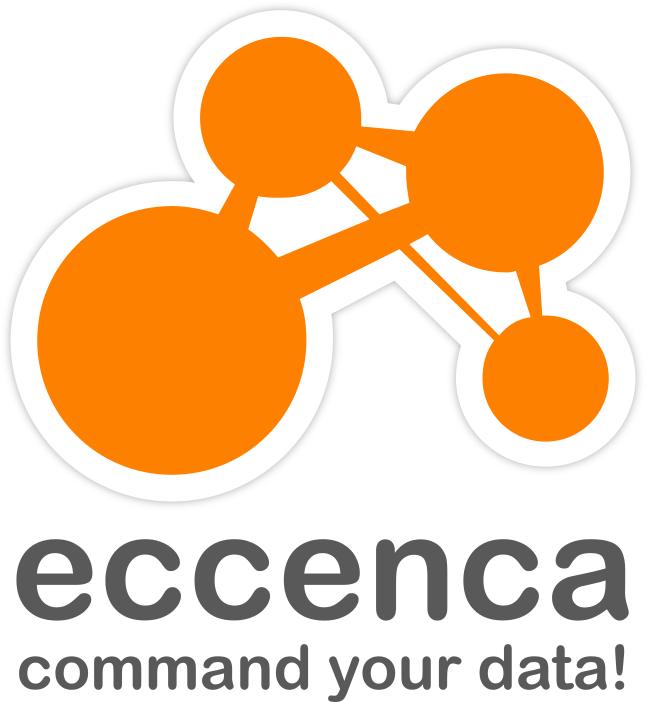Innovative Regional Growth Core in the Area of Leipzig
 The innovative growth core project Linked Enterprise Data Services (LEDS) is aiming at developing, establishing and merchandising the next generation of semantic, interlinked data driven applications and services based on the Linked Data paradigm. In order to achieve this goal, LEDS develops a technology platform, which will include competences, methods and concrete technological building blocks. The project is directly in line with the development of Web 3.0 and with the 2020 strategy for eGovernment.
The innovative growth core project Linked Enterprise Data Services (LEDS) is aiming at developing, establishing and merchandising the next generation of semantic, interlinked data driven applications and services based on the Linked Data paradigm. In order to achieve this goal, LEDS develops a technology platform, which will include competences, methods and concrete technological building blocks. The project is directly in line with the development of Web 3.0 and with the 2020 strategy for eGovernment.
Conference Participation
LEDS project partners are part of the SEMANTiCS2016 organisation team and will give research and industry talks during the conference. LEDS representatives are members of the programme committees and are nominated as Poster Chair and as Sponsoring Chair. In addition to that, we have chosen the SEMANTiCS2016 as our first public outcome event.
 Topics
Topics
In the research and industry programme we will focus on the following topics:
- Versioning and Co-Evolution of Linked Data
- Linking and Knowledge Extraction in the Context of Linked Enterprise Data
- Lighting Talks of current and upcoming tools and research in this field
- Open eGovernment Data
- Semantic eCommerce
- Natural Language Processing
- Corporate Memory and Big Data / Linked Data Integration.
 Talks
Talks
This includes but is not limited to the following talks:
- Jörg Unbehauen and Michael Martin: “Executing SPARQL Queries over Mapped Document Stores with SparqlMap-M”
- Michael Krug, Martin Seidel, Frank Burian and Martin Gaedke: “KESeDa: Knowledge Extraction from Heterogeneous Semi-Structured Data Sources”
- Natanael Arndt, Norman Radtke and Michael Martin: “Distributed Collaboration on RDF Datasets Using Git: Towards the Quit Store”
- Marvin Frommhold, Ruben Navarro Piris, Natanael Arndt, Sebastian Tramp, Niklas Petersen and Michael Martin: “Towards Versioning of Arbitrary RDF Data”
 Posters
Posters
| |
|
|
|
| |
Stand No. |
Title |
Authors |
| |
6 |
Adding Semantics to Model Driven ApplicationDevelopment with CVtec and SparqlMap |
Jörg Unbehauen, Andreas Nareike and Johannes Schmidt |
| |
18 |
Towards Reputation-Aware Expert Finding with Linked Open Data |
Sebastian Heil, Stefan Wild, Michael Krug and Martin Gaedke |
| |
26 |
Using DevOps principles to continuously monitor RDF data quality |
Roy Meissner and Kurt Junghanns |
| |
28 |
Enforcing scalable authorization on SPARQL queries |
Joerg Unbehauen, Marvin Frommhold and Michael Martin |
| |
32 |
OntoWiki 1.0: 10 Years of Development - What's New in OntoWiki |
Philipp Frischmuth, Natanael Arndt and Michael Martin |
| |
34 |
Quit Diff: Calculating the Delta Between RDF Datasets under Version Control |
Natanael Arndt and Norman Radtke |
Cross-cutting project topics
The project is funded by the German Federal Ministry of Education and Research. The three-year project started in 2015 and is split into six work areas which tackle the most crucial aspects of semantic applications: speed, capacity, scalability, complexity and interactivity.
In detail the LEDS partners push the limits in regards to:
- Enterprise Linked Data & Data Integration
- Semantic Information Management
- Management of background knowledge with regard to co-evolution, curation and orchestration
- Data quality assurance
- Data coherence
- Knowledge Discovery & Intelligent Search
- Scalable search on Linked Data
- Knowledge extraction from unstructured, semi-structured and other non-RDF data sources
- Business Models, Governance & Data Strategies
- eCommerce and application of Linked Data in online shop systems
- Interlinking public, commercial and administrative data
The following research topics announced for the SEMANTiCS2016 programme are covered by the LEDS project:
- Corporate Knowledge Graphs
- Economics of Data, Data Services and Data Ecosystems
- Big Data & Text Analytics
- Data Portals & Knowledge Visualization
- Semantic Information Management
- Smart Connectivity, Networking & Interlinking
- Smart Data & Semantics in IoT
- Industry & Engineering
- Public Administration
- Publishing, Marketing & Advertising
Partners
LEDS is a joint research project addressing the evolution of classic enterprise IT infrastructure to semantically linked data services. The research partners are the Leipzig University and Technical University Chemnitz as well as the semantic technology providers Netresearch, Ontos, brox IT-Solutions, Lecos and eccenca.
 |
 |
 |
 |
 |
 |
 |
|
brox IT-Solutions GmbH
|
Leipzig University
|
Ontos GmbH
|
TU Chemnitz
|
Netresearch GmbH & Co. KG
|
Lecos GmbH
|
eccenca GmbH
|
Supported by
Natanael Arndt
Collaboration is one of the most important topics regarding the evolution of the World Wide Web and thus also for the Web of Data. In scenarios of distributed collaboration on datasets it is necessary to provide support for multiple different versions of datasets to exist simultaneously, while also providing support for merging diverged datasets.
Jörg Unbehauen
With the increasing adoption of NoSQL data base systems like MongoDB or CouchDB more and more applications store structured data according to a non-relational, document oriented model. Exposing this structured data as Linked Data is currently inhibited by a lack of standards as well as tools and requires the implementation of custom solutions.
Michael Krug
A large part of the free knowledge existing on the Web is available as heterogeneous, semi-structured data, which is only weakly interlinked and in general does not include any semantic classi fication. Due to the enormous amount of information the necessary preparation of this data for integrating it in the Web of Data requires automated processes.
Marvin Frommhold
Coherent and consistent tracking of provenance data and in particular update history information is a crucial building block for any serious information system architecture. Version Control Systems can be a part of such an architecture enabling users to query and manipulate versioning information as well as content revisions.
Robert Isele
Large corporations have to master vast amounts of heterogeneous data in order to stay competitive. While existing approaches have attempted to consolidate and manage the data by forcing it into a single shared data model, data lakes recently emerged that instead provide a central storage point for holding all data sets in their original form.
Christian Opitz
Semantic technologies offer a wide range of benefits in an increasing number of application fields such as data management, business intelligence, machine learning etc. However - likely due to their complexity and the ambiguous business value - semantics yet play a little role in SME applications.
Martin Voigt
Since the most of the world’s data is unstructured, the mining of required information from text was, is and will be essential. However, the requirements for text mining are becoming more complex, as rare languages or new domains need to be supported, social media content has often a worse grammar or mixed languages, and the amount and velocity of the data growths constantly.
Hans-Christian Brockmann
The innovative growth core project Linked Enterprise Data Services (LEDS) is aiming at developing, establishing and merchandising the next generation of semantic, interlinked data driven applications and services based on the Linked Data paradigm.
Sören Auer
In the last years, Big Data as well as Linked Data technologies gained wide attention. The primary goal of Big Data technologies is the high-performance analysis of large-scale data (volume and velocity), while Linked Data aims at integrating distributed, heterogeneous data (Variety).
 The innovative growth core project Linked Enterprise Data Services (LEDS) is aiming at developing, establishing and merchandising the next generation of semantic, interlinked data driven applications and services based on the Linked Data paradigm. In order to achieve this goal, LEDS develops a technology platform, which will include competences, methods and concrete technological building blocks. The project is directly in line with the development of Web 3.0 and with the 2020 strategy for eGovernment.
The innovative growth core project Linked Enterprise Data Services (LEDS) is aiming at developing, establishing and merchandising the next generation of semantic, interlinked data driven applications and services based on the Linked Data paradigm. In order to achieve this goal, LEDS develops a technology platform, which will include competences, methods and concrete technological building blocks. The project is directly in line with the development of Web 3.0 and with the 2020 strategy for eGovernment.  Topics
Topics Talks
Talks Posters
Posters







